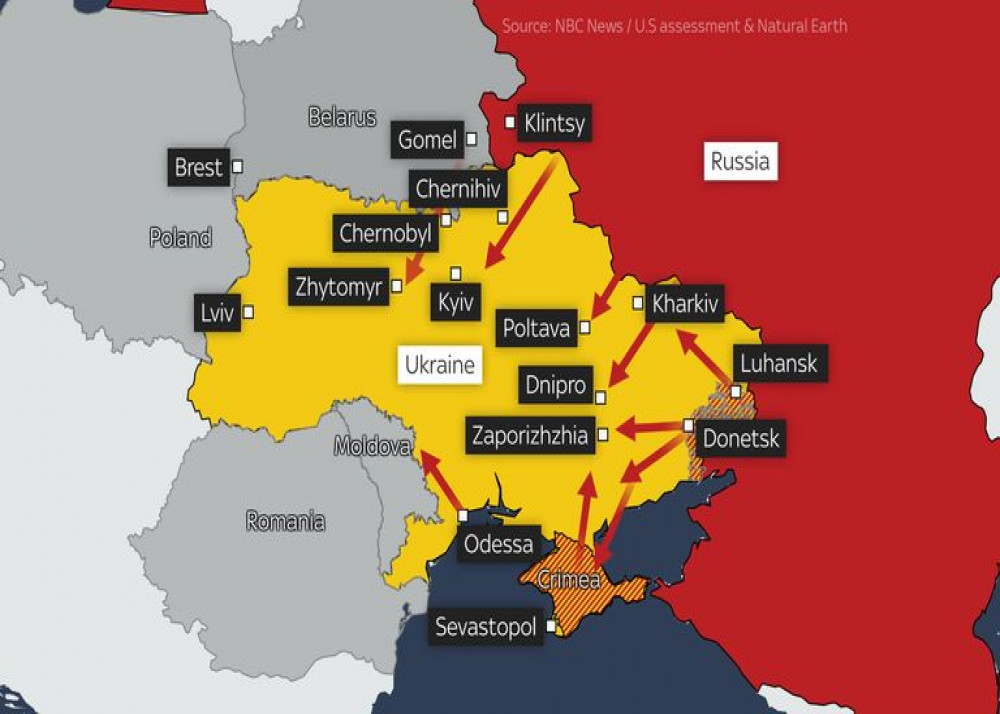 24th February
24th February
The European Union will impose "massive and targeted" sanctions on Russia over its aggression in Ukraine.
The sanctions will hit Russian financial sector, freezing Russian assets and banning the export of technology to Russia, European Commission President Ursula von der Leyen said Thursday morning.
"These sanctions are designed to take a heavy toll on the Kremlin's interests and their ability to finance war," she said. Russian President Vladimir Putin "should not underestimate the resolve and strength of our democracies," she said.
Over the past two days, the U.S., the U.K. and the EU have placed targeted sanctions on several Russian banks, sanctioned Russian lawmakers and officials and banned the purchase and trade of Russian government bonds in European markets.
U.S., EU and U.K. officials say they had other, more-powerful financial weapons in their arsenal and were primed to use them as Mr. Putin escalated the situation. Those include sanctions on much larger Russian banks, a ban on investment in Russian gas projects, and export controls designed to deprive Russian industry of technology needed for long-term economic growth.
Russian entities are prepared to fight back by making deals with any global actors willing to work with them — and using digital currencies to offset some of the worst effects.
The Times reported that the entities will be able to use the digital currencies to bypass control points from other governments, including transfers of money by banks.
“Russia has had a lot of time to think about this specific consequence,” said Michael Parker, a former federal prosecutor who now heads the anti-money laundering and sanctions practice at the Washington law firm Ferrari & Associates. “It would be naive to think that they haven’t gamed out exactly this scenario.”